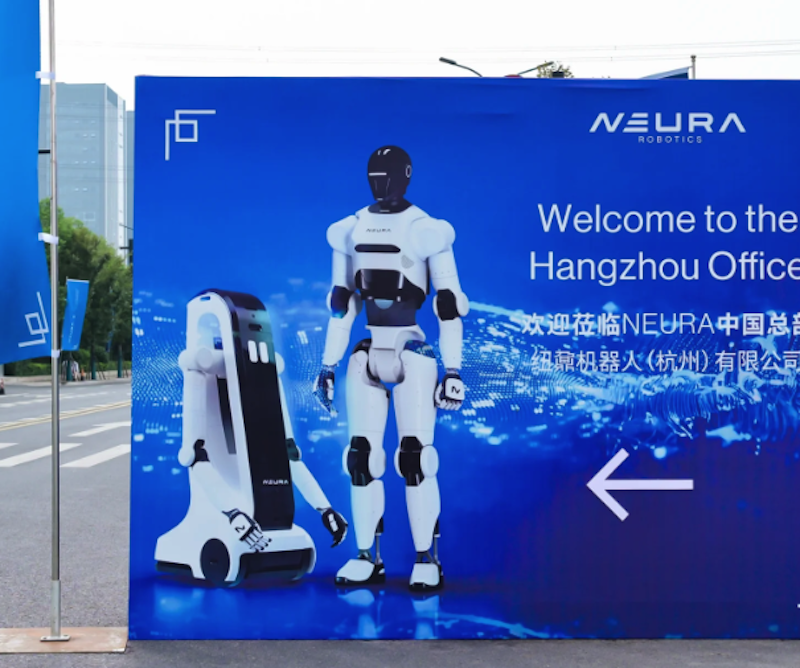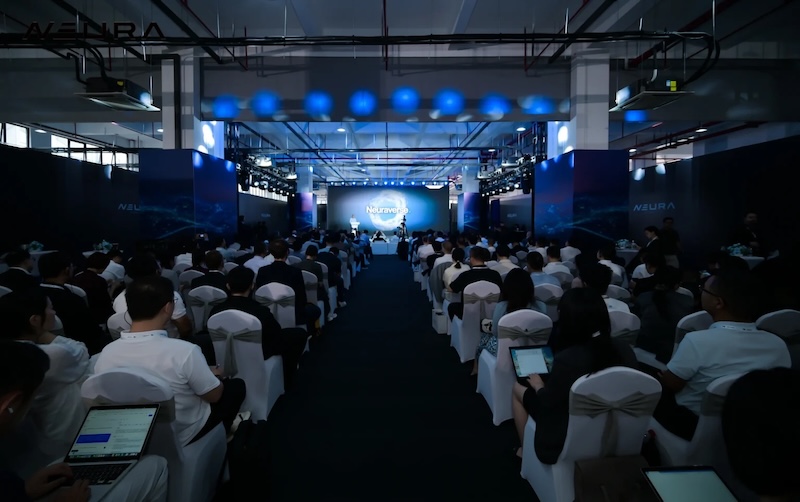Neura Robotics has expanded its presence in China with the opening of a new site and collaboration hub in Hangzhou, marking a significant step in the company’s strategy to build global partnerships in humanoid and cognitive robotics.
The Hangzhou facility – called the Neura Hub – will focus on developing data-driven robotics training and strengthening cooperation with major Chinese industry players.
The opening positions the German company within one of the world’s largest and fastest-growing robotics ecosystems while maintaining what it describes as its identity as a European innovator.
A central element of Neura’s global strategy is the Neuraverse, its infrastructure for collecting and distributing real-world robotics data to improve robot learning and performance.
According to the company, humanoid AI systems face a major data deficit compared with large language models, and the Hangzhou hub is intended to help close that gap.
The new site also includes China’s first NeuraGym, a physical training and data-collection centre where robots perform real-world tasks to generate data that can be shared across the Neuraverse. Neura says this model supports faster development and deployment of cognitive and humanoid robots.
The company plans to use the Hangzhou hub as a gateway for joint development projects, local talent expansion, and international collaboration. The facility will also provide a point of access for overseas firms seeking to work with China’s robotics sector.
During the opening ceremony, Neura Robotics is signing partnership agreements with several Chinese and international companies, including Alibaba Cloud. These partnerships will focus on collaborative innovation, data collection and large-scale deployment of Neura’s technologies.
Founder and CEO David Reger said: “The Neuraverse is to robotics what iOS or Android were to smartphones – the platform where innovation happens and scales. With the Hangzhou hub and the first NeuraGym in China, we are taking a major step towards becoming the operating system of global robotics.
“If you want to win the race of humanoid and cognitive robotics, you need to partner with the biggest Chinese players. We are proud and grateful for the high interest from so many leading companies to go this way with us.”
Neura said more than 250 representatives from over 120 organisations across China, Europe and other regions attended the event, including customers, suppliers, investors and research institutions.


